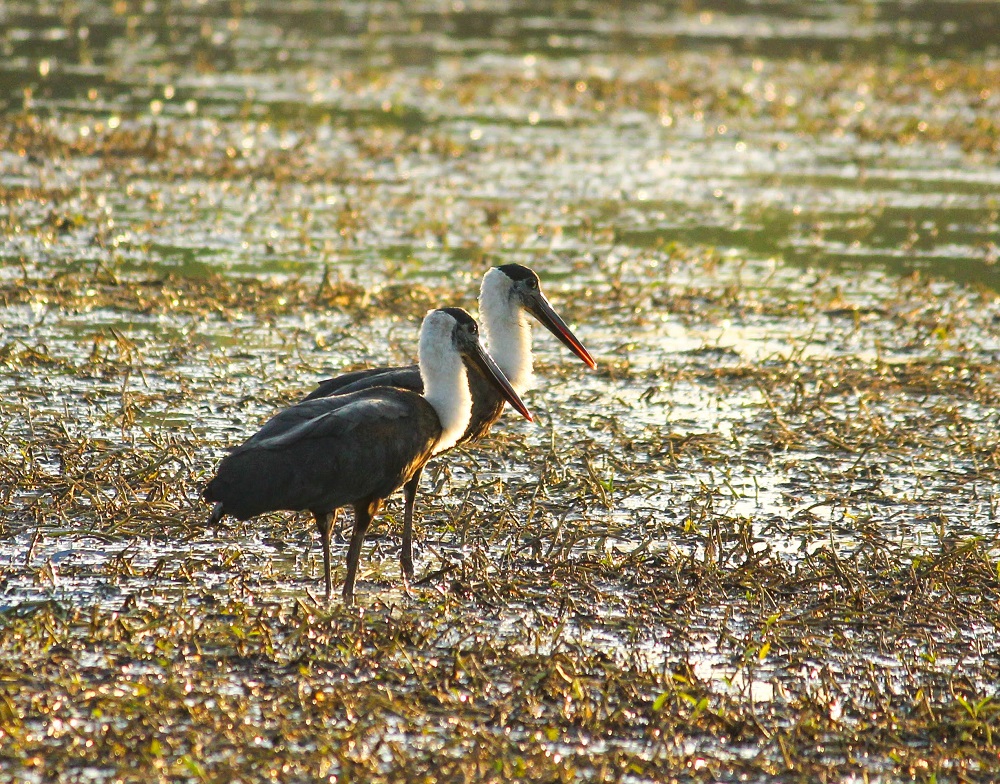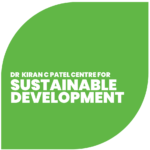
WATER
Prof Pratysuh Dayal’s team is exploring various options of sustainable systems for sewage disposal and management that can be adopted at high altitude areas. Prof Chinmay Ghoroi’s team has developed passive filters for water disinfection. Students and researchers in Prof Vikrant Jain’s group focus on sustainably managing water as a natural resource by developing relevant geomorphic models and tools.
Prof Manish Kumar and his team have conducted a detailed study of microcontaminants and water use patterns in households and developed methods for in-situ arsenic and fluoride removal from the groundwater. They have also worked on sustainable water quality management in the urban environment.
Prof Pranab Mohapatra has focused on minimising losses and effectively distributing water to end-users by integrating sensors in Gujarat’s water distribution networks. Prof Mohapatra has also worked on developing a fit-for-purpose water sensitive design framework for fast-growing cities.

POLLUTION & WASTE MANAGEMENT
Students and researchers working with Prof Chinmay Ghoroi are conducting a study to assess and compare indoor air pollutants sources and concentrations, including Volatile Organic Compounds (VOCs) and Particulate Matter (PM) in India, China, and the USA. The group also focuses on applying naturally available materials to develop low cost, efficient and scalable materials for CO2 capture and developing materials for improved performance of solar plants considering the impact of air pollution on solar photovoltaics.

CLIMATE CHANGE
Prof Vikrant Jain’s research group uses hydro geographic modelling to assess flood risk in tropical rivers and studies the impact of natural phenomena such as sea-level fluctuations, climate change, or tectonic activity on the decline of the Harappan settlement Dholavira, Kutch, India. Prof Jain is also leading the project on the Establishment of Gujarat State Climate Change Centre, implemented by GEER Foundation under the National Mission of Strategic Knowledge of Climate Change. The project focuses on Risk and Vulnerability Assessment of the seven priority sectors of Gujarat, namely (i) Water Resources, (ii) Agriculture, (iii) Forests and Biodiversity, (iv) Urban Development, (v) Health, (vi) Renewable Energy and Energy Efficiency and (vii) Sea-level Rise and Coastal Infrastructure also covering Vulnerable
Communities as a cross-cutting issue in all the above.
Prof Udit Bhatia’s team is working on different aspects of climate change, such as understanding hydrological processes and downscaling earth system model output, with a physics guided data science approach. Prof Bhatia’s research attempts to design effective recovery strategies for built and natural systems ranging from transportation and power distribution to water and ecosystem services subject to disparate and evolving threats such as climate change and cyber-attacks. Prof Vimal Mishra’s group focuses on hydrologic modelling and forecasting systems for river basin hydrology and extremes for India and assessing impacts of climate variability and climate change on water resources in the Sabarmati River basin. His group has also examined the effects of climate change on water resources, critical infrastructure for railways and highways in India. In addition, Prof Mishra’s group has researched climate change impacts on hydroclimatic extremes including, floods, droughts, and heatwaves in India.

ENERGY
Prof Ragavan Kanagaraj’s team is working on electric vehicle applications, and Prof Saumyakanti Khatua’s group works on efficient solar energy storage as clean fuels. Prof Emila Panda and her research team focus on developing indigenous technologies for solar cells and thin films for solar cell applications. Students and researchers working with Prof Jaichander Swaminathan are investigating the use of solar energy for brine treatment to achieve near-zero carbon emissions.
The research teams led by Prof Atul Bhargav and Prof Krishna Kanti Dey are exploring materials for sustainable and energy-efficient buildings and applications of specific nanocrystals for energy materials, respectively. Prof Kabeer Jasuja’s team is developing a new class of energy storage nanocomposites. Prof Naran Pindoriya’s research scholars and project staff work on various aspects of intelligent distribution grids/ microgrids and integrate distributed generations and energy management. Some of the projects led by Prof Pindoriya are related to smart energy management, promoting efficient energy utilisation on the IITGN campus, integrating renewable energy sources and energy storage, increasing the robustness of critical infrastructure, and utilising Infrastructure and Communication Technology (ICT) for infrastructure digitisation.

NATURAL RESOURCES, WILDLIFE & ECOSYSTEMS
The rainforest-rich Arunachal Pradesh state of India, a biodiversity hotspot, is an area severely affected by indigenous hunting. The state has several indigenous tribes who hunt for food, trade, culture and leisure. ‘History, Science & Technology of Wildlife Hunting and Trapping in Arunachal Pradesh’ is a project led by Prof Ambika Aiyadurai. Another project that Prof Aiyadurai and her team work on is ‘Mangroves stories in Gujarat’.
Dr Sapatashi Dey has been working on a research project that evaluates the time windows of prevailing sediment aggradation and related paleo-erosion rates from the southern flanks of the Dhauladhar Range in the western Himalaya to explore landscape responses under variable climatic forcing. Data collected and analysed in the process highlights the highly non-linear response of climatic forcing on landscape evolution and suggest complex depositional processes and sedimentary signals in downstream areas.

